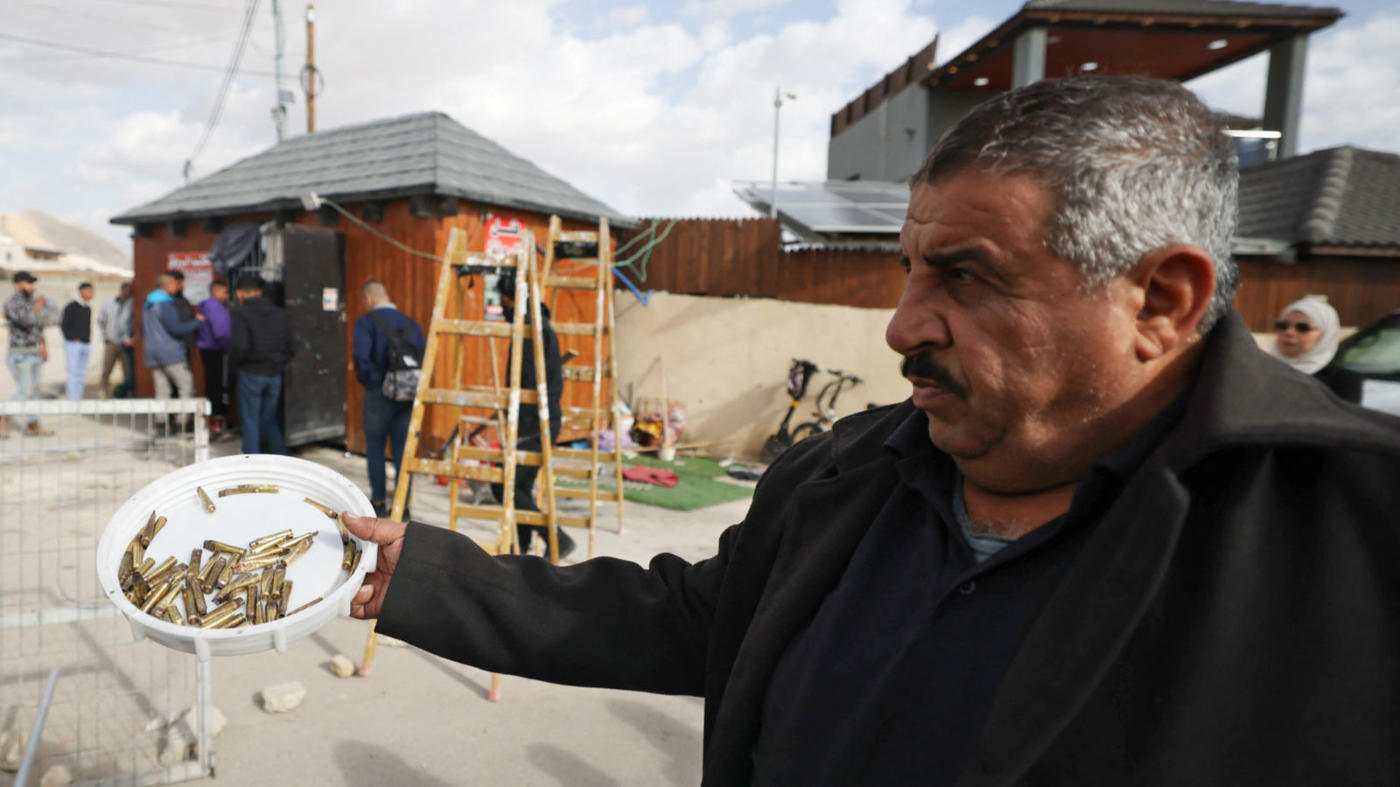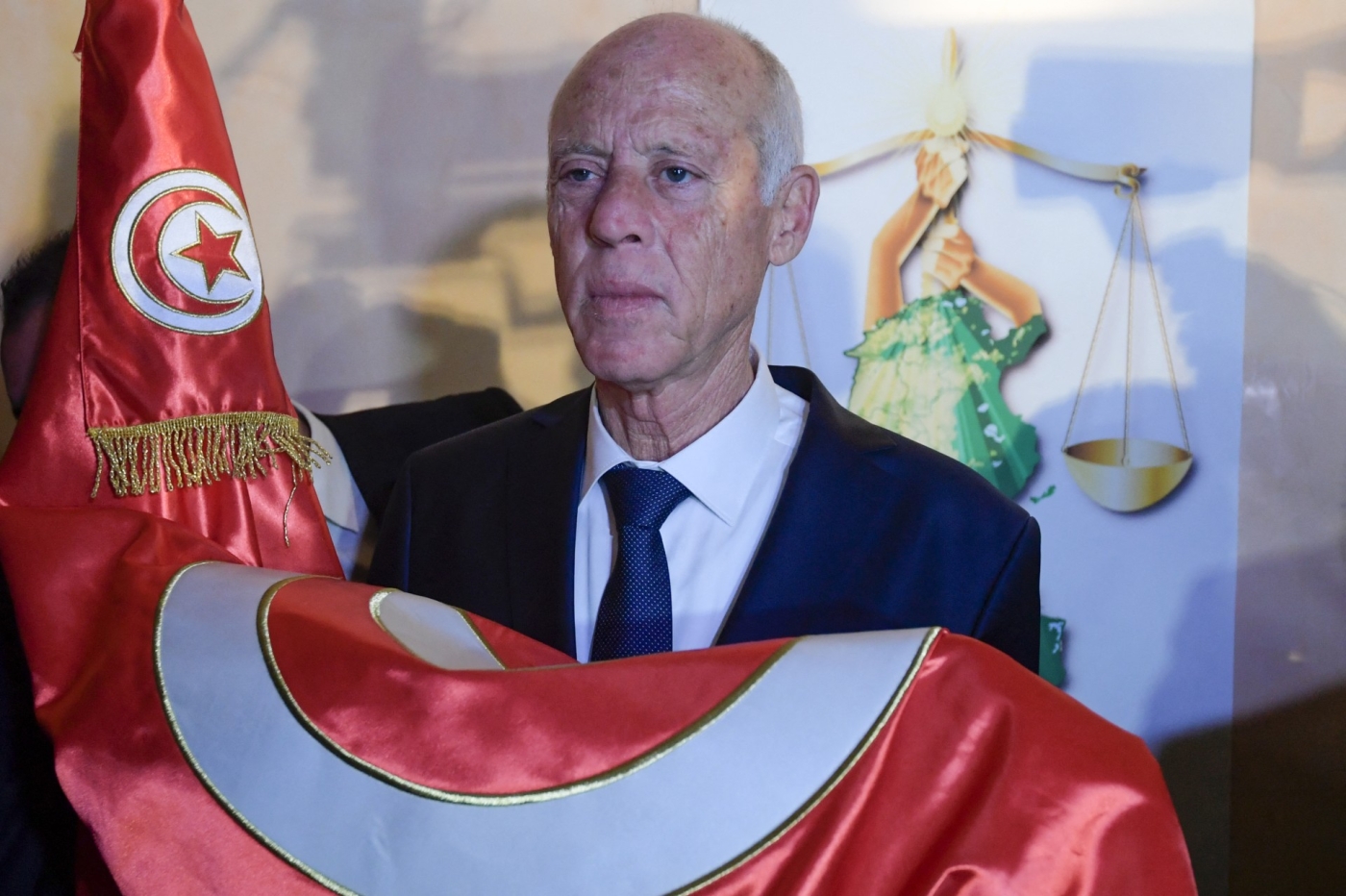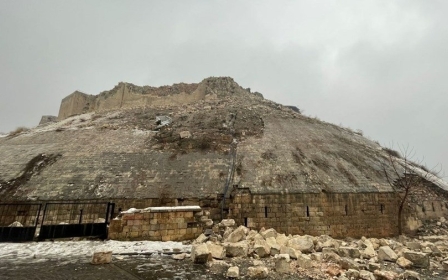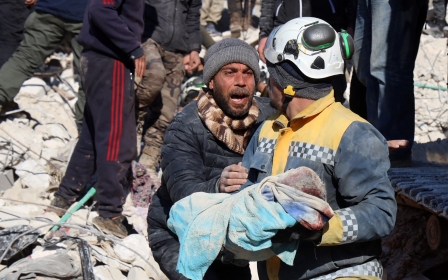Nine Middle East stories you may have missed since the Turkey-Syria earthquake
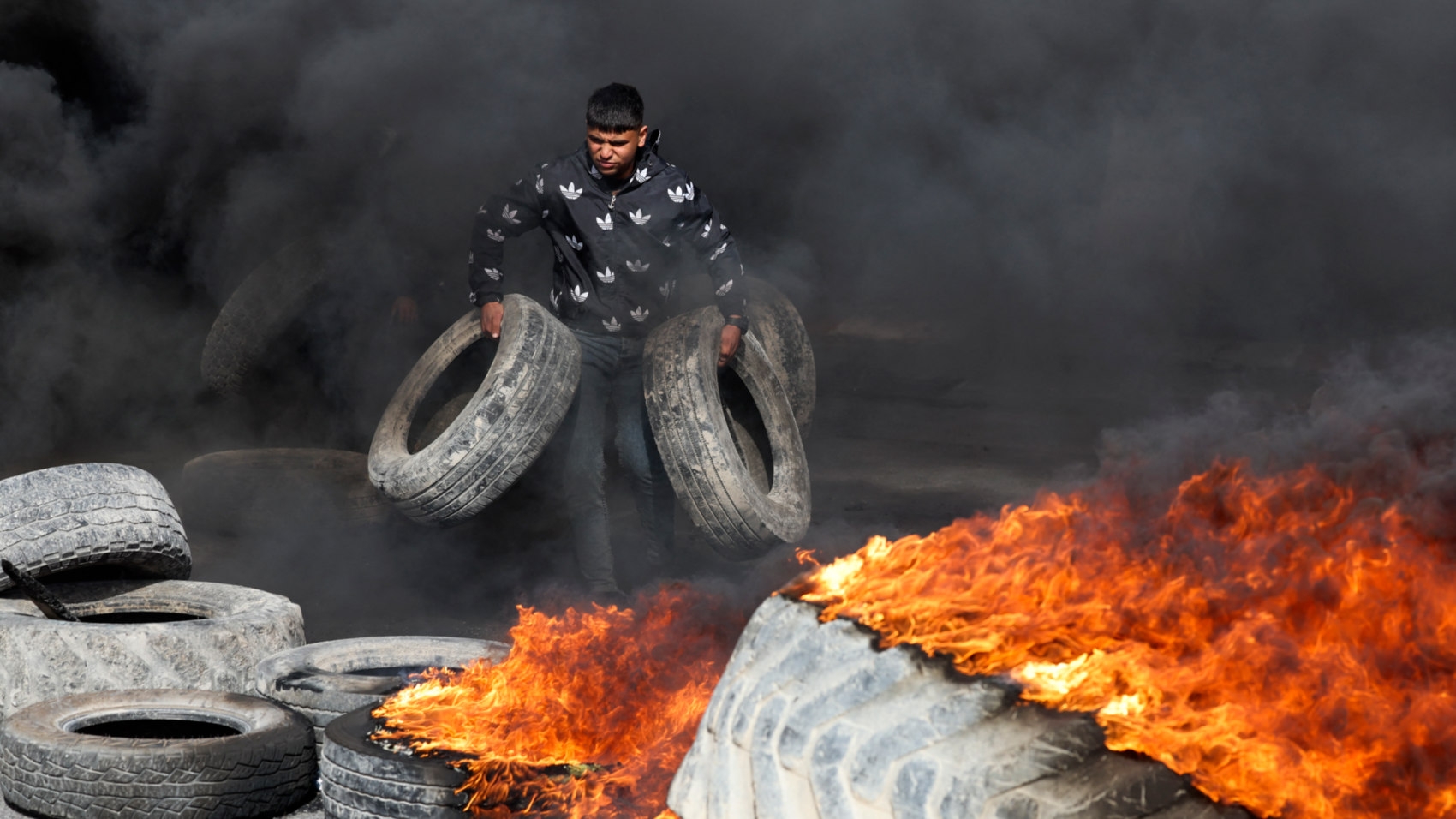
The earthquakes that devastated southern Turkey and northern Syria have dominated global news coverage during the past five days. At time of writing, more than 22,000 people are confirmed dead, as rescue efforts continue and aid is sent to affected areas.
The disaster has overshadowed other news from the Middle East and North Africa during the past five days: here are some stories from the region and beyond that you may have missed.
1. West Bank: Israeli forces kill five Palestinians in Jericho raid
New MEE newsletter: Jerusalem Dispatch
Sign up to get the latest insights and analysis on Israel-Palestine, alongside Turkey Unpacked and other MEE newsletters
Israeli forces shot dead at least five Palestinians and withheld their bodies on Monday morning near the occupied West Bank city of Jericho.
The troops raided the Aqbat Jabr refugee camp near the city at dawn and were met with armed Palestinians, leading to exchanges of fire.
The incursion followed nearly two weeks of Israeli closures and checkpoints on Jericho’s entrances and exits.
The Israeli army ramped up operations and raids in the city after a report of a shooting at a restaurant frequented by settlers in the city on 28 January. No casualties were reported at the time. The army said two Palestinians suspected of being behind the restaurant shooting were among those killed on Monday.
Read more: West Bank: Israeli forces kill five Palestinians in Jericho raid
Read more: The ‘15-minute’ Israeli raid that left five dead and blood on the Jericho streets
Read more: CIA chief warns current tensions resemble Second Intifada
2. Egypt's sell-off amid economic crisis
Egypt is set to sell stakes in at least 32 companies by the end of March 2024, Prime Minister Mostafa Madbouly said on Wednesday, reviving stalled privatisation plans as the country grapples with mounting economic difficulties.

Stakes in three prominent banks - Banque du Caire, United Bank of Egypt, and the Arab African International Bank - are ear-marked for sale along with insurance, electricity and energy companies. Government-owned hotels and agricultural firms are also on the block.
The Arab world’s most populous nation has been reeling from the dual impacts of the Russia-Ukraine war and the Covid-19 pandemic on its import-dependent economy. It has been forced to devalue its currency as economic pressures mount, contributing to spiralling inflation.
Cairo was forced to turn to the IMF for its fourth loan from the lender in six years. As part of its $3bn bailout deal, it's supposed to open up its books for state-owned enterprises, move forward with privatisation, and slow spending on public projects.
Read more: Egypt to sell stakes in dozens of state firms
Read more: Why is Egypt's pound plunging?
3. Prevent review criticised or focus on Islamism
The UK government said on Wednesday it would refocus Prevent on tackling "Islamist extremism" as a highly contentious and serially leaked review of the counter-extremism strategy was finally published almost 30 months late.
The review, which was launched in January 2019 and originally due to be completed by August 2020, has already been rejected by many critics of Prevent because of concerns about its independence and the government’s controversial choice of William Shawcross as reviewer.

But in a government response, Home Secretary Suella Braverman said she welcomed the review and would deliver on all 34 recommendations made by Shawcross.
Shawcross also said supporters of Hamas should be treated the same as supporters of the Islamic State group and subjected to the full force of the law. The British government proscribed Hamas in its entirety as a terrorist organisation in November 2021, meaning that anyone who expresses support for the Palestinian group could face up to 10 years in prison.
Other recommendations included extending Prevent to job centres and immigration and detention facilities; raising the benchmark on what constititutes extreme far-right ideology; and more encouragement of family and friends to report those who they think may be susceptible to acts of terror.
Read more: Prevent review criticised as Shawcross calls for focus on Islamism
Read more: Prevent review: 11 key takeaways from the Shawcross report
Read more: Prevent review: Four years of delays, legal challenges, boycotts and leaks
4. Russian defends Wagner Group in Sudan
Russian Foreign Minister Sergei Lavrov blasted western powers and defended the mercenary Wagner Group in a press conference held at Khartoum Airport at the end of his two-day visit to Sudan.
The Russian diplomat, who held separate meetings with Sudan's ruling General Abdel Fattah al-Burhan and his deputy, Mohamed Hamdan Daglo, commonly known as Hemeti, said that proposed Russian military bases on Sudan's Red Sea coast were going ahead.
Lavrov arrived in Khartoum late on Wednesday as part of a tour seeking to expand Moscow's influence that has included trips to Mauritania, Mali and Iraq.

Sudan, which was cut off from billions of dollars in international financing after the October 2021 military coup led by Burhan, last week hosted a delegation from the Israeli foreign ministry. Envoys from the US, UK and European Union were in Khartoum at the same time as Lavrov.
The presence of the Wagner Group in Sudan, where it is thought to have connections to Hemeti, and in the neighbouring Central African Republic, where the mercenaries are fighting local rebels on behalf of the government of Faustin-Archange Touadera, was addressed by Lavrov.
"These companies are private military and security companies coming to these countries according to agreements with the governments that have sovereignty over their countries."
Read more: Russian FM Lavrov defends Wagner Group in Sudan
Read more: Syrian fighters participated in Wagner Group massacres
Read more: Russian mercenaries near Sudan accused of killing hundreds
5. UK court: Bahrain activists' case can proceed
Two UK-based activists who allege that Bahrain installed spyware on their computers can proceed with their lawsuit against the kingdom, the High Court ruled on Wednesday, their lawyers and one of the claimants said.
Saeed Shehabi, a leading figure in Bahrain’s opposition movement, and Moosa Mohammed, pro-democracy activist and photojournalist, allege that their computers were infected with surveillance software called FinSpy in September 2011.

Seven months after anti-government protests started in the island nation, the men were using the computers to communicate with other activists, journalists, political prisoners, torture victims and their families.
In court proceedings a year ago, lawyers for the Bahraini government argued that the kingdom had state immunity and the case, therefore, should be thrown out.
But on Wednesday, Judge Julian Knowles ruled that the High Court has jurisdiction to hear the claim. Mohammed called the judgement "a huge victory", particularly since, he said, he and his family continue to face persecution in Bahrain.
Read more: UK High Court court rules Uk-based Bahrain activists' case can proceed
Read more: The Arab dissidents ruined by phone hacking
6. Tunisia to strengthen ties with Syria
Tunisia and Syria will be strengthening their diplomatic ties, President Kais Saied announced on Thursday.
Tunisia cut off diplomatic relations with Syria about a decade ago, in protest against President Bashar al-Assad's suppression of the 2011 popular uprising that sought to remove him from power. Tunisia returned a limited diplomatic mission to Syria in 2017.
At a meeting in Carthage Palace on Thursday, Saied and Nabil Ammar, the new minister of foreign affairs, decided to raise the level of Tunisian diplomatic representation in Damascus.
Saied dismissed Foreign Minister Othman Jerandi on Tuesday, replacing him with Ammar, the former ambassador to the European Union and Belgium.
Read more: Tunisia's President Kais Saied says it will to strengthen diplomatic ties with Syria
7. Egypt court upholds death sentence for student's killer
An Egyptian court upheld a death sentence on Thursday against the killer of Nayera Ashraf, a university student murdered last June.
Ashraf was 21 years old when fellow student Mohamed Adel beat and stabbed her multiple times in broad daylight in June 2022 in front of shocked onlookers, after she refused his advances and a marriage proposal.

Adel appealed, but the Court of Cassation upheld the death sentence by hanging, a ruling first handed down by the Mansoura Criminal Court in June, then approved by the country's grand mufti
Adel, who confessed to the murder, told the prosecutor that he met Ashraf at al-Mansoura University, where they were studying, and exchanged course notes and textbooks with her.
He said that Ashraf blocked him on social media when he approached her several times and that she rejected his proposal to get engaged.
Read more: Egypt court upholds death sentence for Nayera Ashraf killer
8. Barcelona cuts ties with twin city Tel Aviv
Barcelona will no longer be twinned with Tel Aviv due to Israel's "apartheid policy" towards Palestinians, the city's mayor announced on Wednesday.
Ada Colau said in a press conference that she wrote to Israeli Prime Minister Benjamin Netanyahu informing him relations between the Spanish city and Israel are severed until "Israeli authorities stop the systematic violation of human rights of the Palestinian people".
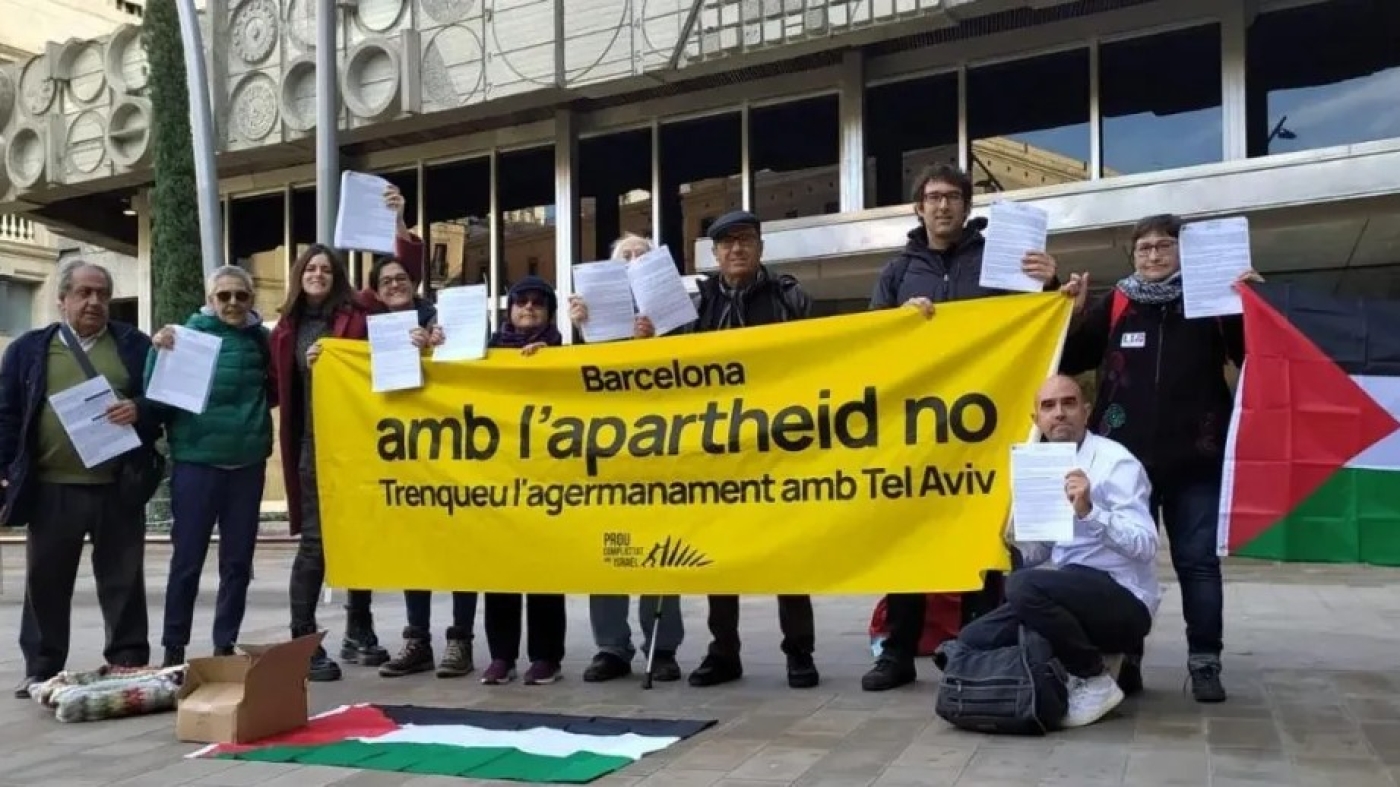
Last month, hundreds of pro-Palestine protesters gathered in front of Barcelona City Hall, urging politicians to suspend the twin city agreement with Tel Aviv.
Barcelona, Tel Aviv and Gaza City signed a friendship and cooperation agreement in 1998. Pro-Palestinian activists called for Barcelona's relationship with Gaza City to continue.
Read more: Barcelona cuts ties with twin city Tel Aviv over Israeli 'apartheid'
Read more: Israel boycott: What is the BDS movement?
9. Iranian protest anthem wins Grammy
A song that has become the anthem of the anti-government protests in Iran was given a special award at the Grammy music awards on Sunday, presented by US First Lady Jill Biden.
The special Grammy for Best Song for Social Change was handed to Shervin Hajipour, a 25-year-old Iranian musician, for his song Baraye.

The song, originally released on Hajipour's Instagram page shortly after the protests began, has been taken up by activists in Iran who have been demonstrating since September following the death in custody of 22-year-old Mahsa Amini.
Amini died following her arrest for "inappropriate hijab", sparking off one of the biggest anti-government movements the country has seen in years.
Read more: Iranian protest anthem wins special award at Grammys
Read more: Full coverage of Iran protests
Middle East Eye delivers independent and unrivalled coverage and analysis of the Middle East, North Africa and beyond. To learn more about republishing this content and the associated fees, please fill out this form. More about MEE can be found here.


